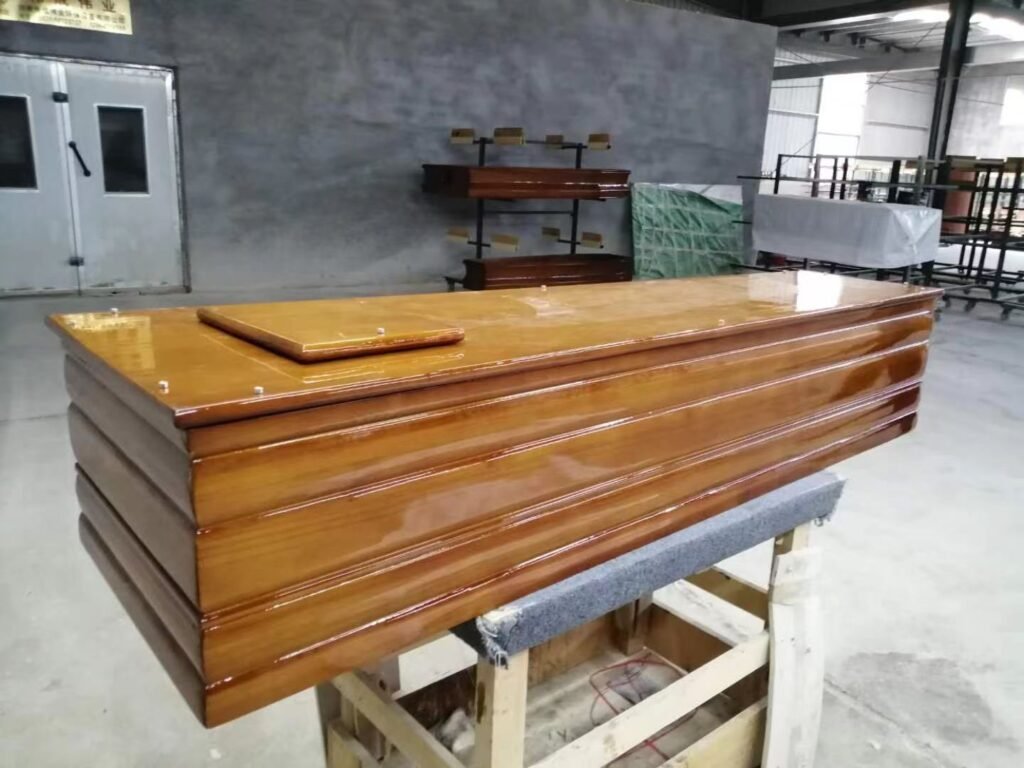Caskets and coffins have been an integral part of funeral traditions worldwide, symbolizing respect, remembrance, and closure. From the materials used to the craftsmanship involved, the selection of a casket is a deeply personal choice. This article delves into the world of casket manufacturing, examining the largest casket makers, the best woods for coffins, the geography of production within the United States, and the most expensive woods used in this somber craft.

Who Is the Largest Casket Manufacturer?
Caskets and coffins have been an integral part of funeral traditions worldwide, symbolizing respect, remembrance, and closure. From the materials used to the craftsmanship involved, the selection of a casket is a deeply personal choice. This article delves into the world of casket manufacturing, examining the largest casket makers, the best woods for coffins, the geography of production within the United States, and the most expensive woods used in this somber craft.

What Is the Best Wood for a Coffin?
The choice of wood for a coffin depends on several factors, including cultural preferences, availability, and aesthetic appeal. Some of the best woods for coffins are:
Mahogany: Known for its rich color and durability, mahogany is a popular choice for its natural beauty and strength. It polishes well and is resistant to rot and insects, making it a preferred material for high-quality caskets.
Oak: Oak is prized for its hardness and grain patterns. It is a strong wood that can be finished to a smooth, elegant appearance, making it a timeless option for caskets.
Maple: Maple is lighter in color and has a fine, even texture. It is often chosen for its clean look and ability to accept stains well, allowing for a variety of finishes.
Cherry: Cherry wood is valued for its reddish-brown hue and fine grain. It ages gracefully, developing a deeper color over time, which makes it a desirable material for those seeking a natural and enduring aesthetic.
Ultimately, the ‘best’ wood is subjective and depends on individual tastes and regional preferences.

Where Are Caskets Made in the USA?
Caskets in the USA are manufactured across various locations, with some notable centers of production:
Indiana: Home to Batesville, Indiana is a significant hub for casket manufacturing. The state’s central location facilitates distribution across the country.
Texas: Several casket makers operate in Texas, benefiting from access to local timber resources and a skilled workforce.
Pennsylvania: With a history rooted in woodworking, Pennsylvania hosts a number of artisanal casket makers, contributing to the diversity of the industry.
These regions benefit from established supply chains and a tradition of craftsmanship, supporting both large-scale producers and smaller, bespoke operations.

What Is the Most Expensive Wood for a Coffin?
The most expensive woods used for coffins are often exotic species known for their rarity and distinctive properties. These include:
Ebony: Ebony is one of the densest and darkest woods, highly valued for its deep black color and fine grain. Its scarcity and difficulty in sourcing make it one of the priciest options.
Rosewood: Rosewood is recognized for its rich hues and intricate grain patterns. It is prized for its durability and beautiful finish, contributing to its premium status.
Bubinga: This African hardwood is known for its striking colors and patterns, ranging from pinkish-red to dark brown. Its visual appeal and limited availability drive its high cost.
Zebrawood: Named for its distinctive stripes resembling a zebra, this wood is highly sought after for its unique appearance and rarity.
These woods are often reserved for luxury caskets, reflecting a desire for elegance and exclusivity in the final resting place.
Conclusion
The art of casket making combines tradition with modernity, blending the finest materials with meticulous craftsmanship. From the industry leaders like Batesville to the choice of woods, each element plays a role in honoring the deceased. Whether crafted from the most common or the rarest of timbers, caskets serve as a final tribute, encapsulating the essence of respect and remembrance. Understanding the nuances of casket manufacturing, from the largest producers to the most exquisite materials, helps families make informed decisions that reflect their values and traditions, ensuring dignity and honor in the face of loss.




